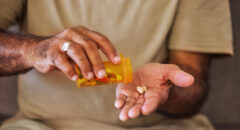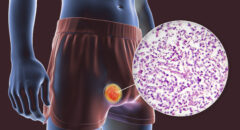 What is HPV? If you learn that you have HPV, it's important to be honest with yourself and your partner. If you don't inform your partner, you are putting them at risk of contracting the disease and you are possibly endangering their health, especially in women.
What is HPV? If you learn that you have HPV, it's important to be honest with yourself and your partner. If you don't inform your partner, you are putting them at risk of contracting the disease and you are possibly endangering their health, especially in women.
Remember, you're not alone. HPV is one of the most common STD viruses out there. Most people who are infected never experience symptoms. For those that do, symptoms often come and go at different times. HPV while dating does not mean the end of your sex life. If you are upfront, at the appropriate time, with your partner, things will be a lot smoother down the road.
It can be very scary to learn that you or your partner has HPV. You may hear the diagnosis and be worried that you’re going to get cancer, or have a lifelong battle with genital warts. However, HPV is extremely common, and most people with the virus never go on to develop cancer or have symptoms such as warts. In fact, many never have symptoms at all.
Therefore, if you've just learned that you or your partner has HPV, don't panic. It's far from the end of the world. In fact, it may not change your life much at all. The best thing you can do is sit back, take a deep breath, and learn more about the virus.
Get educated. If you know that you have HPV, or you know that your partner does, it's of the utmost importance for both of you to be educated as to what exactly HPV is and how it effects your life. There are many myths out there and when people hear “STD,” they can get terrified. Education is the best form of prevention.
Use protection. Speaking of prevention, use protection! If you are dating someone with HPV or you yourself have HPV, using protection when having sex is one of the keys to preventing the spread of the virus. A condom or dental dam can help to prevent the spread of HPV, but realize, the risk is always there.
Get yourself tested. Whether you are dating someone with HPV or you have HPV yourself, it's important to get tested often. Getting tested for sexually transmitted diseases on a regular basis is important, regardless of having HPV. If your partner doesn't have HPV and you do, getting tested can determine whether they need to begin treatment.
Research. Along with education, researching HPV can help to ease your mind. If you are dating with HPV, reading as much about the topic can help to let you know you're not alone. HPV is one of the most common diseases out there and...
...is not always caused by genital to genital contact. For some people, it is passed on at birth.
Understand your symptoms. In some people, HPV does not present any outward symptoms at all. For some, years can pass before any symptoms present themselves. Along with getting tested regularly, understanding the symptoms of HPV can help you and your partner to choose appropriate sexual behavior.
Seek support online. There are plenty of websites for people suffering from HPV. Online, you can get unbiased, nonjudgmental advice from people who are dealing with the same dating situations you are. Society as a whole places a stigma on people who have STDs, but online, you can anonymously seek help, advice, and support from people who are dealing with the same things you are.
Seek treatment. Your physician can recommend treatment options for dealing with your HPV, from creams to freezing. HPV, once developing symptoms, is not something you can treat at home. Don't be embarrassed or afraid. Talk to your doctor about your HPV.
Understand your body. Research has shown that HPV breakouts are caused by things such as stress, poor diet, and smoking. Understanding your body, as well as being conscience of your overall well being, can help to alleviate the effects of HPV. A good tip would be for you and your partner to develop a wellness plan and stick to it. This will help both of you to mitigate the effects of HPV.









